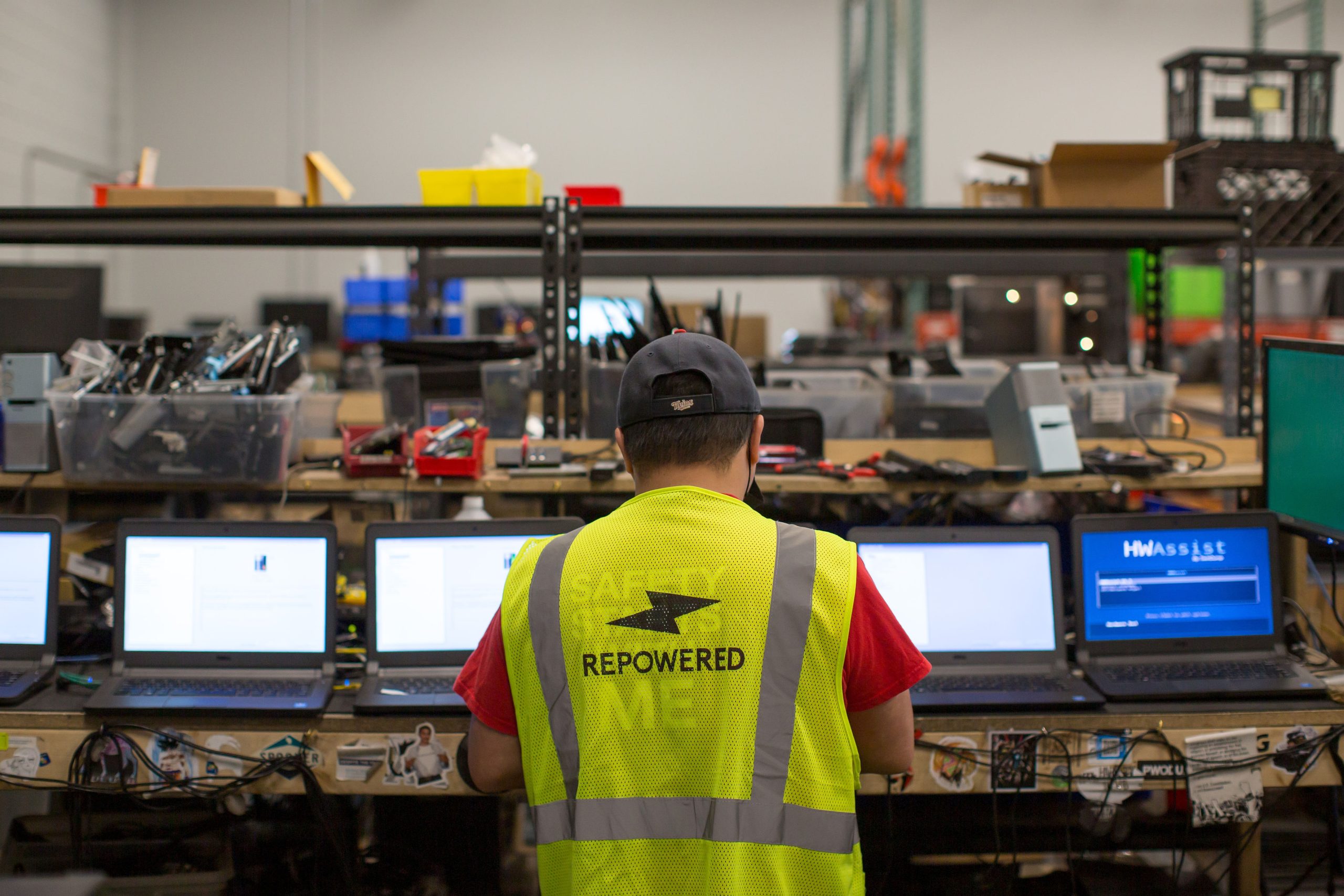
Electronic waste is the largest growing waste stream worldwide. The U.S. is a big contributor to that waste stream, and, unfortunately, most of our e-waste still ends up in landfills.
Electronics contain toxic materials, including PVC plastic and hazardous chemicals, as well as heavy metals like lead, mercury, and cadmium. In a landfill, these toxic substances can contaminate soil and groundwater, affecting people, animals, and plant life.
And while the e-waste recycling industry is growing, electronics recycling in the U.S. still has a long way to go.
A large percentage of the population is still not recycling their old devices, in large part because of a lack of knowledge surrounding electronics recycling. Plus, federal regulations and laws surrounding electronics recycling are often insufficient, outdated, or completely nonexistent.
Recycling Legislation Is Lacking
In general, recycling adoption in the U.S. is pretty dismal…and electronics recycling even more so. Part of the reason for this is a lack of legislation at the federal and state level.
Federal laws don’t specifically address e-waste recycling at all, and only 25 states—plus Washington, D.C.—have any type of legislation on the books that addresses it (thankfully, Minnesota is one of them). The remaining 25 states have no comprehensive electronics recycling programs or any kind of reporting requirements.
In the states without e-waste recycling legislation, not only is it legal to toss electronic devices into the garbage, there are no records kept of what percentage of electronics are being recycled. Any electronics recycling that does take place is entirely voluntary, and there isn’t much (or any) oversight of the process to ensure it is done in an environmentally safe manner.
Federal Regulations Are Incomplete
While the EPA does have the authority to regulate hazardous waste, households and many small businesses are largely exempt from EPA regulations. And most electronics are purchased, used, and disposed of by individual consumers.
In 2015, the National Strategy for Electronics Stewardship (NSES) was created via executive order by the Obama administration. The goals of the NSES included developing incentives for eco-friendly electronics, increasing safe management of used devices, and reducing e-waste exports to developing countries.
However, the executive order creating the NSES was essentially revoked by a 2018 order by the Trump administration, leaving much of the work planned for the NSES undone.
And even as international efforts to pass comprehensive e-waste regulations have grown, the U.S. has largely resisted them.
Electronics Recycling in the U.S. Can Be Confusing and Frustrating
At the individual level, the enthusiasm for sustainability is generally high, but actually living that enthusiasm out…well, that’s a different story.
Generally speaking, people are terrible at recycling.
Case in point: a recent survey by Arris Electronics found that nearly 1 in 4 people toss old cell phones and computers in the garbage. This is especially notable, considering that 73% of people upgrade their cell phones every 2-4 years. Even if only a quarter of those old phones are being thrown away, that’s still a lot of cell phones in the landfill!
One of the biggest obstacles to better recycling habits is confusion over what can and can’t be recycled. For example, the Arris Electronics survey found that 21% of respondents didn’t know that electronics could be recycled!
They also found that 90% of respondents would be more likely to recycle their old electronics if they knew how. Even for those who do know that e-waste can be recycled, the search for a certified recycler near them is often fruitless.
Be a Part of the Solution With Repowered
If we want electronics recycling in the U.S. to be successful, we need to make sure people know how and where to do it, and make the process easier for them.
This is one of the goals we work toward here at Repowered.
Repowered helps individuals and businesses alike do their part to slow the growing e-waste problem by offering easy electronics recycling.
We offer two drop-off locations for the general public, as well as onsite pickup services for businesses. Once you drop off your electronics or have them picked up, your job is done—we’ll take care of the rest. First, we’ll ensure any data remaining on your device is securely destroyed. Then, we’ll either refurbish the device (if it still has some usefulness left in it) or recycle it using environmentally sound practices.
Learn more about our certified recycling services here.
When it’s time to upgrade your electronics, Repowered will be here to recycle your old devices. Find us at one of our community drop off locations, or contact us to schedule pickup services for your business.
Recent News & Articles

Spotify Car Thing: What To Do Once The Device Stops Working

Second Chance Month: Why Fair Chances Are So Important

